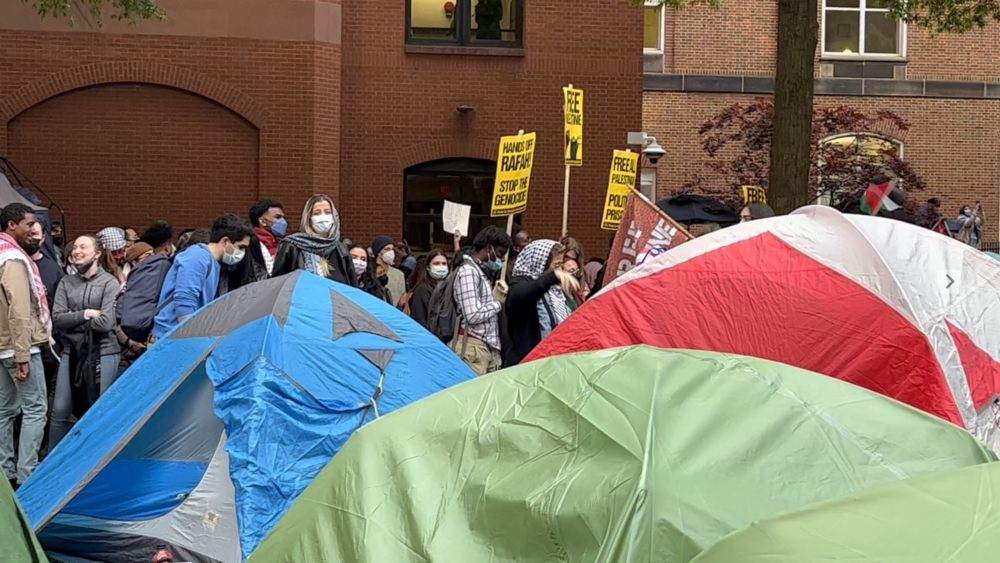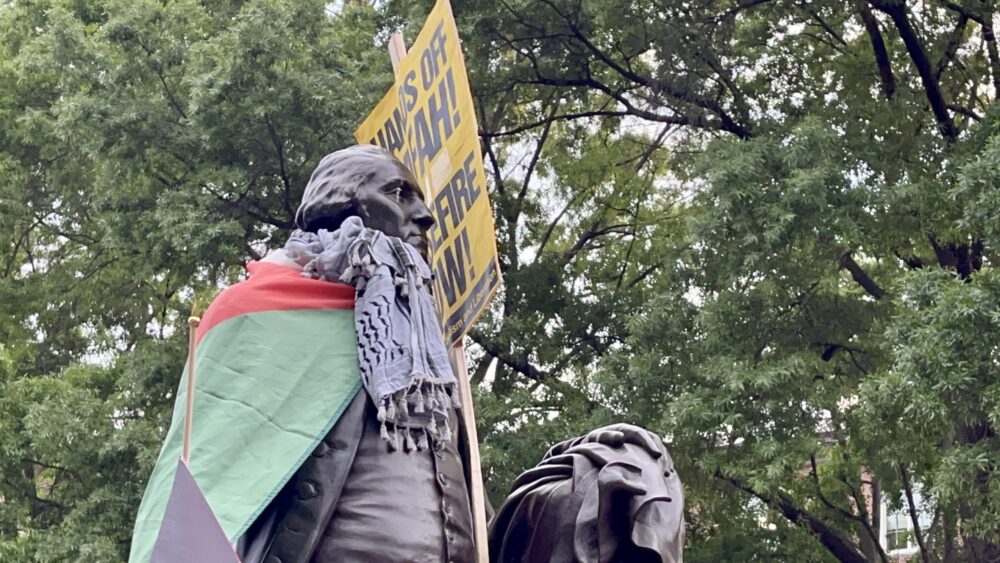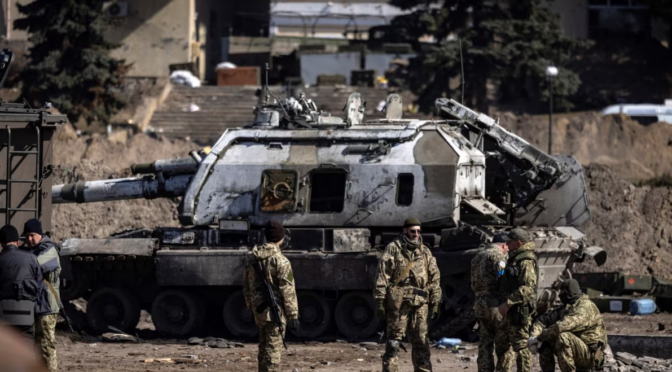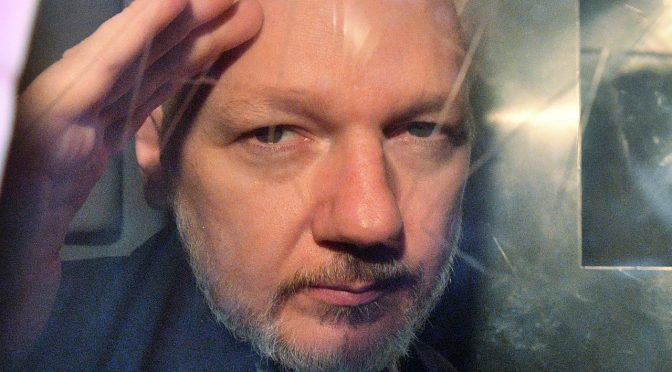“The two ‘sides’ of mainstream politics are not fighting against one another, they’re only fighting against you. Their only job is to keep you clapping along with the two-handed puppet show as they rob you blind and tighten your chains while your gaze is fixed on the performance.”—Caitlin Johnstone
Continue reading Engineering a Crisis: How Political Theater Helps the Deep State Stay in PowerAll posts by Geopolitics101
Global IT Meltdown: CrowdStrike Update Paralyzes Air Travel and Media Worldwide
In an unprecedented technological catastrophe, a faulty software update from cybersecurity firm CrowdStrike triggered a global IT outage on July 19, 2024, causing widespread disruptions across multiple sectors.
Continue reading Global IT Meltdown: CrowdStrike Update Paralyzes Air Travel and Media WorldwideThe Shifting Tides of Power: Trump, Ukraine, and the Future of US Foreign Policy
In a world where geopolitical tensions continue to escalate, recent events have thrust the complex relationship between the United States, Ukraine, and Russia back into the spotlight.
Continue reading The Shifting Tides of Power: Trump, Ukraine, and the Future of US Foreign PolicyICJ Declares Israel’s Occupation Illegal: Global Reactions and Implications
In a landmark ruling, the International Court of Justice (ICJ) has declared Israel’s occupation of Palestinian territories illegal, marking a significant moment in the long-standing Israeli-Palestinian conflict. This advisory opinion, sought by the United Nations General Assembly, has sent ripples through the international community and reignited debates about the future of the occupied territories.
Continue reading ICJ Declares Israel’s Occupation Illegal: Global Reactions and ImplicationsIran’s New Direction: President-Elect Pezeshkian’s Balanced Approach to Global Relations
In the wake of former President Ebrahim Raisi’s tragic death in a helicopter crash in mid-May, Iran held snap elections that resulted in the victory of Masoud Pezeshkian. The President-elect has since published a foreign policy vision in the Tehran Times titled “My message to the new world,” which has been described as refreshing due to its departure from the zero-sum thinking that often dominates international relations discourse.
Continue reading Iran’s New Direction: President-Elect Pezeshkian’s Balanced Approach to Global RelationsWhy Assume There Will be a 2024 Election?
Trump’s near assassination this weekend represents an incredibly important reminder of the stakes going into the 2024 election amidst a vast systemic collapse and heightened threat of a thermonuclear war. At this stage, despite the cast of compromised characters among Trump’s support network, no one has displayed so consistent a quality of leadership that qualifies them for dealing with the current crisis as Trump has displayed.
Continue reading Why Assume There Will be a 2024 Election?BRICS Parliament & Expansion: Shaping a New Global Order
The BRICS group, comprising Brazil, Russia, India, China, and South Africa, has been making significant strides in reshaping global governance and economic cooperation. Recent developments, including the expansion of the bloc and calls for reform in international institutions, highlight the growing influence of this coalition of emerging economies.
Continue reading BRICS Parliament & Expansion: Shaping a New Global OrderThe Ukraine Conflict: A Looming Threat to European Stability
The ongoing conflict in Ukraine has evolved from a regional dispute into a potential powder keg that threatens to engulf Europe in a broader conflict. This article examines the complex dynamics at play, exploring the contrasting interests of the United States and Europe, and the dire consequences that could unfold if the situation continues to escalate.
Continue reading The Ukraine Conflict: A Looming Threat to European StabilityThe Gaza Conflict: A Humanitarian Crisis That Western Governments Chose to Ignore
The ongoing conflict between Israel and Hamas in the Gaza Strip has escalated into a humanitarian crisis of unprecedented proportions. This summary aims to provide an overview of the situation, focusing on the impact on civilians, particularly the healthcare system, and the wider implications of the conflict.
Continue reading The Gaza Conflict: A Humanitarian Crisis That Western Governments Chose to IgnoreBRICS Launching an Independent Financial System
Countries of the BRICS economic bloc are currently working on the launch of a financial system that would be independent of the dominance of third parties, according to the Russian Ambassador to China Igor Morgulov.
Continue reading BRICS Launching an Independent Financial SystemReformist Wins in Iran – What Are the Implications for the World?
All indications are that the Reformist candidate, Dr. Masoud Pezeshkian, has won the Presidential snap elections in Iran and defeated ultra-hardliner Saeed Jalili.
Continue reading Reformist Wins in Iran – What Are the Implications for the World?Is Eurasia about to get its own NATO?
The Shanghai Cooperation Organization could play an important role in a nascent security system that emphasizes total development.
Continue reading Is Eurasia about to get its own NATO?Julian Assange is Free: Washington Crafted “A Face Saving Deal”
If the news report from Sky News that reached me early this morning is not a hoax, the US government, increasingly regarded worldwide as a criminal organization, could not convince British courts to extradite Julian Assange. Washington was unable or unwilling to provide the British assurances that Assange would not be abused and denied his rights.
Continue reading Julian Assange is Free: Washington Crafted “A Face Saving Deal”The Death of the Petrodollar: What Really Happened Between the US and Saudis?
News about the expiration of a Washington-Riyadh deal may be fake, but an arrangement that is key to the dollar’s success has eroded.
Continue reading The Death of the Petrodollar: What Really Happened Between the US and Saudis?What Putin’s Meeting with Kim Jong-un Really Means
With the West-centered world order in decline, the strengthening of a new ‘power triangle’ in the East is a logical development.
Continue reading What Putin’s Meeting with Kim Jong-un Really MeansThe BRICS Weigh in on Palestine
The gravity around the newly-enlarged BRICS constellation is drawing in Arab, Muslim, and Global South adherents to the influential group’s message on international law, Palestine, and halting forever wars.
Continue reading The BRICS Weigh in on PalestineThe Ghost of Richelieu Laments the Humbling of France
The headlamp I brought from Temu had flickered out half a dozen levels above the subterranean gallery where I picked my way to the circular staircase that led to the secret ossuary of the Carthusian monks, deep below the sewers of Paris.
Continue reading The Ghost of Richelieu Laments the Humbling of FranceThe Summer of Living Dangerously
The plutocracy believes that afterwards they can buy the whole thing for a pittance while flies are still laying eggs in European carcasses.
Continue reading The Summer of Living DangerouslySupporting Genocide to Halt Multipolarity
The Hegemon is calculating for a World War to halt multipolarity. It supports Israel’s Gaza genocide as a necessary evil to win hard in West Asia, figuring who’s going to care once the war goes global?
Continue reading Supporting Genocide to Halt MultipolarityPutin is Back: This is What His Foreign Policy for the Next Six Years
When he first took office, the Russian president was trying to integrate with the West, now the whole ball game has changed.
Continue reading Putin is Back: This is What His Foreign Policy for the Next Six YearsRaisi led the charge for Russia–Iran–China’s ‘new world order’
Iranian President Ebrahim Raisi’s eastward vision was instrumental in advancing the strategic Moscow–Tehran–Beijing nexus and bulldozing a path toward institutionalizing multipolarity.
Continue reading Raisi led the charge for Russia–Iran–China’s ‘new world order’The Slow-Motion Execution of Assange
The ruling by the High Court in London permitting the WikiLeaks publisher to appeal his extradition order leaves him languishing in precarious health in a high-security prison. That is the point.
Continue reading The Slow-Motion Execution of AssangeBRICS ‘Core’ of Global Efforts to Build ‘Just’ World
The Iranian deputy foreign minister says the BRICS group of emerging economies is resolved to build a justice-based world and serve the interests of independent countries.
Continue reading BRICS ‘Core’ of Global Efforts to Build ‘Just’ WorldDe-Dollarization Bombshell: The Coming of BRICS+ Decentralized Monetary Ecosystem
Get ready for what may well be the geoeconomic bombshell of 2024: the coming of a decentralized monetary ecosystem.
Continue reading De-Dollarization Bombshell: The Coming of BRICS+ Decentralized Monetary EcosystemAfter Military Failure, Israel Eyes US Mercenary Groups Deployment in Gaza
After failing to meet any of its military goals in Gaza, Israel is now looking for an exit – hiring US mercenary groups for deployment in Gaza and pulling out its own troops.
Continue reading After Military Failure, Israel Eyes US Mercenary Groups Deployment in GazaGlobalists Plot Worldwide Genocide Via WHO Pandemic Treaty
With all the trouble in today’s world, including the completely pointless American-instigated war in Ukraine, Israel’s loathsome genocidal onslaught against the Palestinians in Gaza, and militant U.S. threats to China over Taiwan, perhaps we should be asking whether the escalation in tensions threatening massive global conflict is really a carefully-crafted Globalist “false-flag” concealing something even more sinister.
Continue reading Globalists Plot Worldwide Genocide Via WHO Pandemic TreatyWhat A President: He’s Made Us, Again, the World’s Laughingstock
WHAT a president. It turns out that it was President Ferdinand Marcos Jr. who authorized — or even ordered — the implementation of a “new model” proposed by China to de-escalate tensions in Ayungin Shoal that resulted, after the Philippines unilaterally abandoned the model, in the water-cannoning of Philippine Coast Guard vessels and hired civilian ships that tried to supply the BRP Sierra Madre stuck in the area.
Continue reading What A President: He’s Made Us, Again, the World’s LaughingstockNATO Scrambled 240 Fighter Jets to Shield Israel vs Iran’s Operation True Promise
A senior Iranian military commander has revealed new aspects of the Islamic Republic’s retaliatory strikes on the Israeli-occupied territories last month, saying 240 fighter jets belonging to the US-led military alliance of NATO rushed to protect the Zionist regime.
Continue reading NATO Scrambled 240 Fighter Jets to Shield Israel vs Iran’s Operation True PromiseThe Russia–Iran–China Search for A New Global Security Order
While the collective west is in the grips of an existential legitimacy crisis, the RIC is devising its own security order to protect the rest of the world from the ‘genocidals.’
Continue reading The Russia–Iran–China Search for A New Global Security OrderRevolt in the Universities
Achinthya Sivalingam, a graduate student in Public Affairs at Princeton University did not know when she woke up this morning that shortly after 7 a.m. she would join hundreds of students across the country who have been arrested, evicted and banned from campus for protesting the genocide in Gaza.
She wears a blue sweatshirt, sometimes fighting back tears, when I speak to her. We are seated at a small table in the Small World Coffee shop on Witherspoon Street, half a block away from the university she can no longer enter, from the apartment she can no longer live in and from the campus where in a few weeks she was scheduled to graduate.
She wonders where she will spend the night.
The police gave her five minutes to collect items from her apartment.
“I grabbed really random things,” she says. “I grabbed oatmeal for whatever reason. I was really confused.”
Student protesters across the country exhibit a moral and physical courage — many are facing suspension and expulsion — that shames every major institution in the country. They are dangerous not because they disrupt campus life or engage in attacks on Jewish students — many of those protesting are Jewish — but because they expose the abject failure by the ruling elites and their institutions to halt genocide, the crime of crimes.
These students watch, like most of us, Israel’s live-streamed slaughter of the Palestinian people. But unlike most of us, they act. Their voices and protests are a potent counterpoint to the moral bankruptcy that surrounds them.
Not one university president has denounced Israel’s destruction of every university in Gaza. Not one university president has called for an immediate and unconditional ceasefire. Not one university president has used the words “apartheid” or “genocide.” Not one university president has called for sanctions and divestment from Israel.
Instead, heads of these academic institutions grovel supinely before wealthy donors, corporations — including weapons manufacturers — and rabid right-wing politicians. They reframe the debate around harm to Jews rather than the daily slaughter of Palestinians, including thousands of children.
They have allowed the abusers — the Zionist state and its supporters — to paint themselves as victims. This false narrative, which focuses on anti-Semitism, allows the centers of power, including the media, to block out the real issue — genocide. It contaminates the debate. It is a classic case of “reactive abuse.” Raise your voice to decry injustice, react to prolonged abuse, attempt to resist, and the abuser suddenly transforms themself into the aggrieved.
Princeton University, like other universities across the country, is determined to halt encampments calling for an end to the genocide. This, it appears, is a coordinated effort by universities across the country.

The university knew about the proposed encampment in advance. When the students reached the five staging sites this morning, they were met by large numbers from the university’s Department of Public Safety and the Princeton Police Department.
The site of the proposed encampment in front of Firestone Library was filled with police. This is despite the fact that students kept their plans off of university emails and confined to what they thought were secure apps. Standing among the police this morning was Rabbi Eitan Webb, who founded and heads Princeton’s Chabad House. He has attended university events to vocally attack those who call for an end to the genocide as anti-semites, according to student activists.
As the some 100 protesters listened to speakers, a helicopter circled noisily overhead. A banner, hanging from a tree, read: “From the River to the Sea, Palestine Will be Free.”
The students said they would continue their protest until Princeton divests from firms that “profit from or engage in the State of Israel’s ongoing military campaign” in Gaza, ends university research “on weapons of war” funded by the Department of Defense, enacts an academic and cultural boycott of Israeli institutions, supports Palestinian academic and cultural institutions and advocates for an immediate and unconditional ceasefire.
But if the students again attempt to erect tents – they took down 14 tents once the two arrests were made this morning – it seems certain they will all be arrested.
“It is far beyond what I expected to happen,” says Aditi Rao, a doctoral student in classics. “They started arresting people seven minutes into the encampment.”

These students, she added, could be suspended or expelled.
Sivalingam ran into one of her professors and pleaded with him for faculty support for the protest. He informed her he was coming up for tenure and could not participate. The course he teaches is called “Ecological Marxism.”
“It was a bizarre moment,” she says. “I spent last semester thinking about ideas and evolution and civil change, like social change. It was a crazy moment.”
She starts to cry.
A few minutes after 7 a.m, police distributed a leaflet to the students erecting tents with the headline “Princeton University Warning and No Trespass Notice.” The leaflet stated that the students were
“engaged in conduct on Princeton University property that violates University rules and regulations, poses a threat to the safety and property of others, and disrupts the regular operations of the University: such conduct includes participating in an encampment and/or disrupting a University event.”
The leaflet said those who engaged in the “prohibited conduct” would be considered a “Defiant Trespasser under New Jersey criminal law (N.J.S.A. 2C:18-3) and subject to immediate arrest.”
A few seconds later Sivalingam heard a police officer say, “Get those two.”
Hassan Sayed, a doctoral student in economics who is of Pakistani descent, was working with Sivalingam to erect one of the tents. He was handcuffed. Sivalingam was zip tied so tightly it cut off circulation to her hands. There are dark bruises circling her wrists.
“There was an initial warning from cops about ‘You are trespassing’ or something like that, ‘This is your first warning,’” Sayed says.
“It was kind of loud. I didn’t hear too much. Suddenly, hands were thrust behind my back. As this happened, my right arm tensed a bit and they said ‘You are resisting arrest if you do that.’ They put the handcuffs on.”
He was asked by one of the arresting officers if he was a student. When he said he was, they immediately informed him that he was banned from campus.
“No mention of what charges are as far as I could hear,” he says. “I get taken to one car. They pat me down a bit. They ask for my student ID.”
Sayed was placed in the back of a campus police car with Sivalingam, who was in agony from the zip ties. He asked the police to loosen the zip ties on Sivalingam, a process that took several minutes as they had to remove her from the vehicle and the scissors were unable to cut through the plastic.
They had to find wire cutters. They were taken to the university’s police station.
Sayed was stripped of his phone, keys, clothes, backpack and AirPods and placed in a holding cell. No one read him his Miranda rights.
He was again told he was banned from the campus.
“Is this an eviction?” he asked the campus police.
The police did not answer.
He asked to call a lawyer. He was told he could call a lawyer when the police were ready.
“They may have mentioned something about trespassing but I don’t remember clearly,” he says. “It certainly was not made salient to me.”
He was told to fill out forms about his mental health and if he was on medication. Then he was informed he was being charged with “defiant trespassing.”
“I say, ‘I’m a student, how is that trespassing? I attend school here,’” he says.
“They really don’t seem to have a good answer. I reiterate, asking whether me being banned from campus constitutes eviction, because I live on campus. They just say, ‘ban from campus.’ I said something like that doesn’t answer the question. They say it will all be explained in the letter. I’m like, ‘Who is writing the letter?’ ‘Dean of grad school’ they respond.”
Sayed was driven to his campus housing. The campus police did not let him have his keys. He was given a few minutes to grab items like his phone charger. They locked his apartment door. He, too, is seeking shelter in the Small World Coffee shop.
Sivalingam often returned to Tamil Nadu in southern India, where she was born, for her summer vacations. The poverty and daily struggle of those around her, to survive, she says, was “sobering.”
“The disparity of my life and theirs, how to reconcile how those things exist in the same world,” she says, her voice quivering with emotion. “It was always very bizarre to me. I think that’s where a lot of my interest in addressing inequality, in being able to think about people outside of the United States as humans, as people who deserve lives and dignity, comes from.”
She must adjust now to being exiled from campus.
“I gotta find somewhere to sleep,” she says, “tell my parents, but that’s going to be a little bit of a conversation, and find ways to engage in jail support and communications because I can’t be there, but I can continue to mobilize.”
There are many shameful periods in American history. The genocide we carried out against indigenous peoples. Slavery. The violent suppression of the labor movement that saw hundreds of workers killed. Lynching. Jim and Jane Crow. Vietnam. Iraq. Afghanistan. Libya.
The genocide in Gaza, which we fund and support, is of such monstrous proportions that it will achieve a prominent place in this pantheon of crimes.
History will not be kind to most of us. But it will bless and revere these students.
Project Nimbus: Google Workers Protesting Israel Deal
Tech workers are protesting against the use of artificial intelligence and other technologies by Israel in its war on Gaza.
Continue reading Project Nimbus: Google Workers Protesting Israel Deal200 Days of Israel’s War on Gaza
More than 34,000 Palestinians killed and vast swaths of the enclave is in ruins as Israel continues its assault.
Continue reading 200 Days of Israel’s War on GazaNeutering NATO: The Next Russia-China Project?
The Euro-Atlantic region has not experienced a crisis like today’s for decades; that has created an opportunity for real change.
Continue reading Neutering NATO: The Next Russia-China Project?Origins of Israel’s Anti-Arab Racism
By the middle of the 19th Century, the multi-ethnic empire was on its way out as the dominant political paradigm in Europe. Replacing it was the nation-state, a political form which allowed the concentration of ethnic groups within their own political borders.
Continue reading Origins of Israel’s Anti-Arab RacismA Great Wealth Transfer is Underway: How the West Lost Control of the Gold Market
Pricing power in a market long dominated by Western institutional money is moving East and the implications are profound.
Continue reading A Great Wealth Transfer is Underway: How the West Lost Control of the Gold MarketNiger to US: Pack Up Your Forever War
Dressed in green military fatigues and a blue garrison cap, Colonel Major Amadou Abdramane, a spokesperson for Niger’s ruling junta, took to local television last month to criticize the United States and sever the long-standing military partnership between the two countries.
Continue reading Niger to US: Pack Up Your Forever WarDeath of Empires: History Tells Us What Will Follow the Collapse of US Hegemony
The last phase of a great power’s decline seems to be accompanied by an economic shift to finance-driven capitalism.
Continue reading Death of Empires: History Tells Us What Will Follow the Collapse of US HegemonyBiden is Still The Best US President Israel Could Wish For
The meaningless ceasefire resolution his administration allowed the UN Security Council to pass should not fool anyone.
Continue reading Biden is Still The Best US President Israel Could Wish ForBRICS’ New Step to End US Dollar Dominance
The BRICS bloc of emerging economies is considering developing an independent payment system based on digital currencies and blockchain to reduce reliance on western financial systems.
Continue reading BRICS’ New Step to End US Dollar DominanceICJ Issues New Order in Genocide Case Against Israel
The World Court cited “exceptionally grave” developments, especially the “spread of famine and starvation,” in once again ordering Israel to prevent genocidal acts in Gaza.
Continue reading ICJ Issues New Order in Genocide Case Against IsraelWhy the US Decided to Give Peace in Gaza A Chance
Washington was in a difficult position at the UN Security Council over its traditional ally.
Continue reading Why the US Decided to Give Peace in Gaza A ChanceThe American Explanation for the Moscow Terror Attack Doesn’t Add Up
Russian foreign policy could change significantly, depending on the results of the investigation into the atrocity.
Continue reading The American Explanation for the Moscow Terror Attack Doesn’t Add UpWill BRICS Launch A New World in 2024?
BRICS doubled its membership at the start of 2024, and faces huge tasks ahead: integrating its newest members, developing future admission criteria, deepening the institution’s groundings, and most importantly, launching the mechanisms for bypassing the US dollar in international finance.
Continue reading Will BRICS Launch A New World in 2024?Washington in Denial Over Putin’s Victory While Gaming its Own Elections
The US condemns Russian President Vladimir Putin’s reelection as illegitimate while ignoring its own electoral shortcomings.
Continue reading Washington in Denial Over Putin’s Victory While Gaming its Own ElectionsThe Complex History of Crimea and its Return to Russia
Jewish enclave, home of a deported nation, a present for the Ukrainians: The long journey of the Crimean peninsula.
Continue reading The Complex History of Crimea and its Return to RussiaThe Ideology of War in Ukraine and Israel
The wars in Ukraine and Gaza are more similar than you might think, at least if you know their histories. The Ukrainian war didn’t start with the Russian military operation, but with the massacres in the Donbass, while the Gaza war didn’t start with the Al-Aqsa deluge, but 75 years earlier with the Nakhba. In the long term, those responsible for both wars share the same ideology.
Continue reading The Ideology of War in Ukraine and IsraelUS Green Berets Deploying to Taiwan’s Front-line
US Special Operations Forces (SOF) have been permanently assigned to Taiwan’s frontline islands, preparing elite Taiwanese units for possible island defense and guerilla warfare operations against a Chinese invasion.
Continue reading US Green Berets Deploying to Taiwan’s Front-lineFull Spectrum Zionist Warfare
Although winning the social media information battle since 7 October, Palestinians and their supporters must work to gut the persistent language parameters that Israel has long cultivated to establish itself as victim, terrorized, and righteous.
Continue reading Full Spectrum Zionist WarfareAIPAC’s Dark Money Arm Unleashes $100 Million
Amid the Netanyahu government’s assault on Gaza and intensifying repression in the West Bank, AIPAC is showing zero tolerance for even the mildest criticism of Israel during the 2024 U.S. elections.
Continue reading AIPAC’s Dark Money Arm Unleashes $100 MillionNazi Rescue of Mussolini A US Model for Zelensky
On July 25, 1943, Benito Mussolini, after being voted out of power by his own Grand Council, was called to a conference with King Vittorio Emanuele
Continue reading Nazi Rescue of Mussolini A US Model for ZelenskySingapore Inadvertently Reveals Direct US Involvement in Ukraine
It’s an axiom that the United States is deeply involved in the Ukrainian conflict. In fact, the warmongering elites in Washington DC initiated it a decade ago, just as they either started or are covertly behind virtually every single conflict in modern history.
Continue reading Singapore Inadvertently Reveals Direct US Involvement in UkraineHere’s The Worst Part About The Leaked German ‘Crimean Bridge Attack’ Call
Some officers seem to have forgotten which country they are sworn to defend. And they are really bad at deception, too.
Continue reading Here’s The Worst Part About The Leaked German ‘Crimean Bridge Attack’ Call



















































